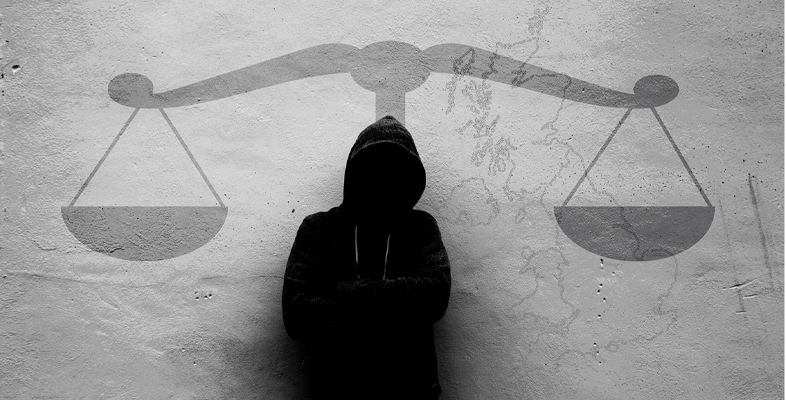1 Child or adult?
Have you ever asked yourself the question ‘when do children stop being children and become adults?’ If not, it doesn’t matter but you cannot learn very much about youth justice without considering this question. It is going to be a focus for your learning in this session. This is because it’s a good way to start understanding many of the issues shaping youth justice practice and youth justice systems in the UK.
What you think about the boundaries that separate children from adults – what makes a child a child and an adult an adult – is very important to the issues you’ll learn about in this course.
Ideas about childhood and adulthood differ from culture to culture and over historical time. These ideas are given particular force and influence when they become law, and changes in law reflect the way the ideas change. For example, in 1969 the law on the ‘age of majority’ – the age at which an individual gains adult status and is granted the right to vote – was changed from 21 to 18 in England and Wales. This did not provoke controversy because it reflected widespread acceptance that by the age of 18 a person had sufficient mental and physical capacity for independent participation in society.
Activity 1 At what age can someone …?
Use an internet search tool to find answers to the following questions.
At what age …:
- … can someone legally drive a car in the UK?
- … can a child be left on their own?
- … can someone leave school?
- … can someone vote?
- … can someone marry?
- … can someone stand for election to Parliament?
- … can someone consent to sex?
Add your answers to the box below.
Discussion
You will have found that for most of the questions the law prescribes an age at which something becomes permissible. You can only vote in a political election from the age of 18, for example. However, for the referendum over Scottish independence in 2014, 16 and 17 year olds were allowed to vote. If you live in the Crown Dependency of Jersey (one of the Channel Islands) you can vote after your 16th birthday.
You will probably have discovered that there is often more than one answer to what seems like a relatively simple question. For example, you may get married between the ages of 16 and 17 if you secure parental consent in England, Wales and Northern Ireland, otherwise you must be 18. In Scotland you can marry with or without parental consent from 16.
In response to the question about the age a child can be left on their own, the law actually has nothing to say. However, parents can be prosecuted if they leave a child unsupervised ‘in a manner likely to cause unnecessary suffering or injury to health’.
You may have also discovered other interesting differences and distinctions that the law makes, and how these change. For example, the age at which someone can consent to sex is now, at 16, the same for homosexual as well as heterosexual acts.
The ‘age of majority’ referred to above is the formal recognition of full adult status when the law allows someone full legal control of themselves so they are deemed responsible for their actions and decisions.
It may have come as no surprise that there are so many variations in the age at which different activities are considered lawful or become permissible. The boundary between adulthood and childhood is a fuzzy one. However, when it comes to the criminal law the boundaries become sharper, as you will examine in the next section.
